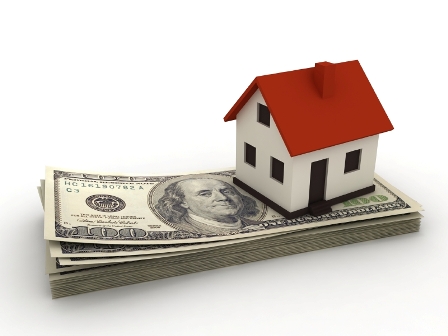Do You Know Your Mortgage PNPs? Savvy Borrowers Know Them Well...
 If I had been asked this question yesterday, I would have returned a blank stare. I read last week a very informative article on Inman News written by Professor Jack Guttentag of Wharton School of Business that talks about PNP's as it relates to mortgage loan pricing.
If I had been asked this question yesterday, I would have returned a blank stare. I read last week a very informative article on Inman News written by Professor Jack Guttentag of Wharton School of Business that talks about PNP's as it relates to mortgage loan pricing.
PNP stands for "Pricing Notch Points" and is a factor that determines pricing of goods. For example, when buying corn, a supermarket may offer "$0.75 per ear for the first three, $0.70 per ear for 4-12 ears and $0.50 per ear if you buy more than 12 ears". In this case the "thresholds" or PNPs are 3 and 12, which are the quantities that trigger the change in unit price. While consumers are familiar with these pricing models (for example you know that when you go to Costco or Sam's you will get a lower unit price but you will have to buy large (bulk) quantities), very few people realize that the same concept applies to shopping for mortgage loans!
In the mortgage loan arena, PNPs are more complex and harder to understand, but the stakes are high. The "price" of a loan includes the interest rate, the amount you pay for mortgage insurance and the cost of the "points", which can vary in response to changes in loan size, loan-to-value ratio (LTV) and the applicant's credit score.
Let's explore each of these dimensions individually:
LOAN SIZE - Currently, the limit for a "conforming" conventional loan is $417,000. This is the highest loan amount that will be purchased by giants Fannie Mae and Freddy Mac. Thus, the "price" (i.e. interest rate) on loans above $417,000 (called "Jumbo Loans") is much higher (normally between 0.75% and 1.5% higher, because these loans are not as easy to re-sell, so lenders are taking a higher risk.
Why is this important? Because the increase in price that results from crossing a PNP applies to the entire loan, not just to the increment, so a "small" increment can be extremely expensive. Example: If you are buying a home worth $480,000, it would make a huge difference to your interest costs if you borrow $417,000 or if you borrow $420,000, because the increment in interest rate that you get by jumping to a Jumbo Loan applies to the WHOLE amount of the loan, not only to the $3K increment over the $417,000! It is very wise to take into consideration that you don't cross this PNP in the wrong direction if you can possibly avoid it.
LOAN-TO-VALUE (LTV) RATIO -PNPs relating to LTV are generally known to be 80%, 85%, 90%, 95% and 97% (there are no more 100% loans available anymore). This ratio measures how much equity you are contributing to the transaction. The higher your equity, the lower the risk of default for the lender (they assume you will try harder to avoid default if you have more of your own money invested). Therefore your interest rate is lower with a lower LTV and higher with a high LTV. This also affects the need and the cost of MORTGAGE INSURANCE (MI), which protects the lender against your default, but it is charged to you (the borrower). If your LTV is below 80% (i.e. you bring more than 20% downpayment), the lender will NOT require that you pay mortgage insurance. This is a huge cost saver. If you have the ability to cross a PNP by putting more money down, your return on that extra investment can be very high by virtue of getting a much lower interest rate and/or MI premium.
LTV PNPs often will become very relevant when financing closing costs, since this will increase the LTV and may breach a PNP. As an example, if closing costs on a $200,000 loan are $6,000 and the initial LTV is 89%, financing the closing costs will increase the LTV to 91.6% and breach the 90% PNP, making the cost of the loan much higher.
FICO CREDIT SCORES - These may vary from lender to lender, but are as important to determine the "price" of your loan. A "typical" set of FICO scores PNPs may look like this: 800, 780, 720, 700, 680, 660, 640, and 620. Whenever you cross a PNP downward, your interest rate will be higher and your loan will cost more. Many borrowers don't know their FICO scores going in, and ignore that by paying a small balance on a couple of credit cards instead of saving these funds for a downpayment, they could jump up their FICO score to a higher PNP, reducing the cost of a mortgage more significantly than using it for downpayment.
As you can see, it is important to know your PNPs! The best advice for savvy borrowers is to find a mortgage loan officer who is sharp, honest and helpful, and who can help you "navigate" your options, plan ahead and try to get the best combination PNPs to reduce your costs. If you don't have one, I can recommend several...






Please contact us if you have any questions or comments.